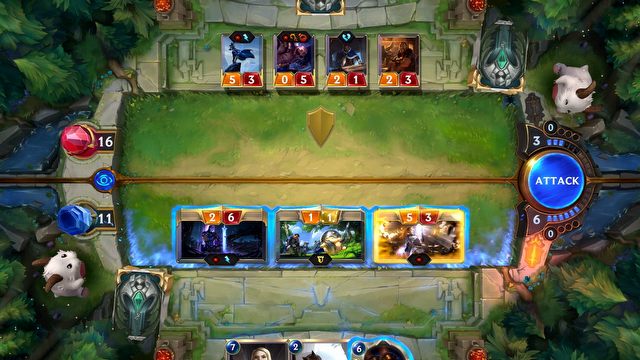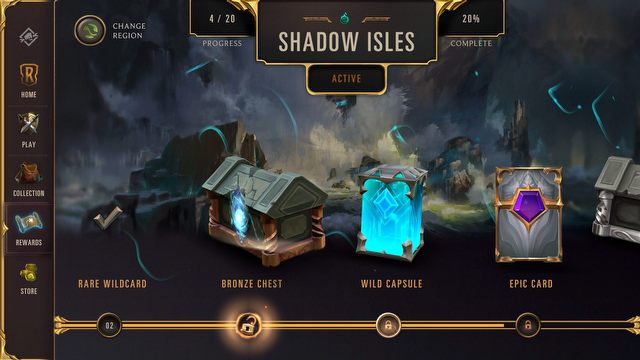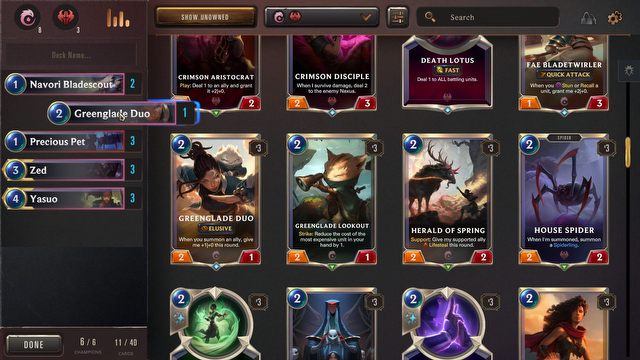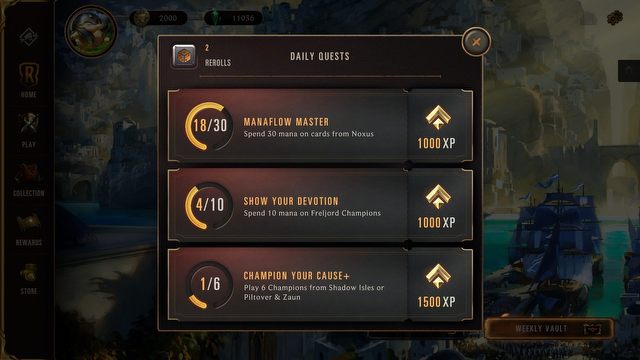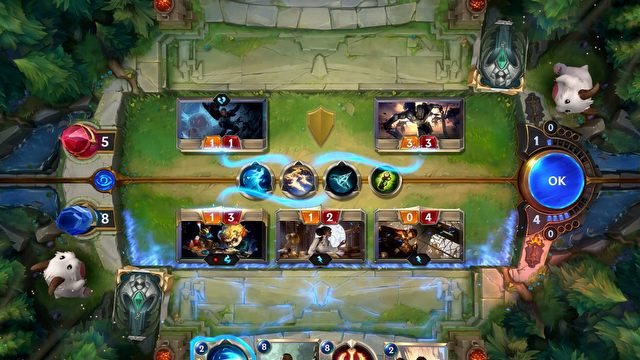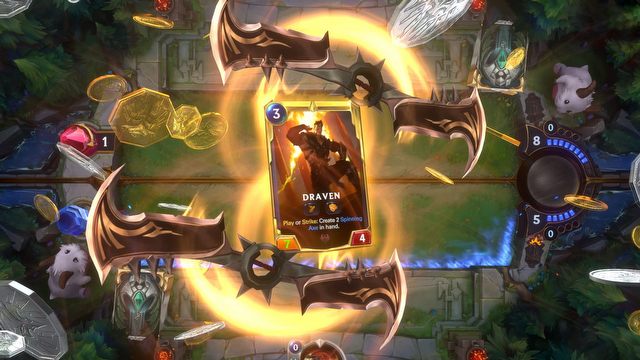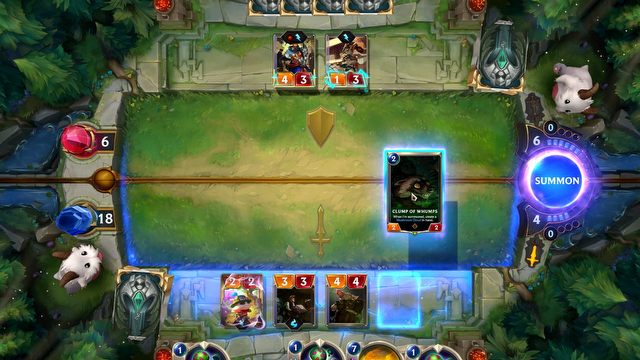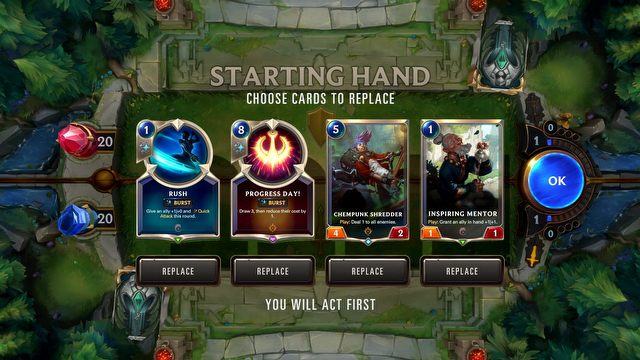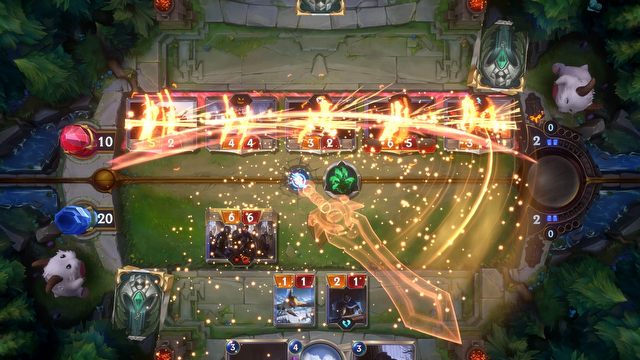Legends of Runeterra Hands-on – How the LoL Card Game will be Better than Hearthstone
Developers at Riot Games have an ambitious plan. They want to make a Hearthstone – only better. We had the opportunity to play a few hours in Legends of Runeterra, and we give you our impressions, and a preliminary opinion.
Why do we even need another card game? Many of you probably asked yourself a similar question after the announcement of Riot's Legends of Runeterra. Since the launch of Hearthstone, many companies have tried to replicate the success of Blizzard, and – so far – to no avail. We had a lot of independent games and productions from major publishers like Bethesda and Valve, but almost all of them either quickly faded into oblivion – like Artifact – or could not find a wider audience – like Gwent.
Can a card game based on the League of Legends franchise buck this trend? I had doubts all the while, but after spending a few hours with the game, I’ve got to admit that the developers from Riot Games have come up with a very good plan – to create a new Heartstone, but without most of the pitfalls of the original. Of that I was convinced.
LEGENDS OF RUNETERRA IN A NUTSHELL:
- a card game set in the League of Legends universe,
- many similarities to Hearthstone;
- the developers promise a friendly free-to-play model;
- games last 10-12 minutes;
- the game will be released on PC and mobile;
- the title will be released in 2020, but…
- ... it will be available in various beta tests beforehand.
Paid card packs? Shoo!
Microtransactions are always an important issue in free-to-play games. The problem is not spending money on virtual stuff, but rather the developers trying to extort money from us at every step. If they do it in a clear and honest way, I can even pay a monthly subscription. But if I sense wool being pulled over my eyes, when I smell pay-to-win and random lootboxes, I uninstall the game without a second thought. Random card packs are considered by many the blight of Hearthstone. In Blizzard's game, you can spend a small fortune and still not get all the cards you wanted, not to mention getting a full set. In Legends of Runeterra, things should look entirely different.
Three ways to get cards:
- Playing or completing daily quests – we gain experience for one of the five available factions, and each has its own progress bar that fills up. Achieving that yields various rewards – both random and special cards (the wild cards), which can be exchanged for a card of your choice on the same rarity level. For example, an epic wild card is swapped for any other epic card available in the game – dead simple. Each player can max out all available factions and their progress will be reset from the beginning of the next season.
- Winning a match raises the level of our treasury, the so-called Vault, which contains chests with random cards. You only open it once a week, and the higher the level you've obtained throughout the week, the better the loot you get at the end of the week. After seven days, the level resets, but as we’ve learned from the developers, getting the best version of the Vault shouldn't require some crazy grinding.
- For real money, you can buy more wild cards in different degrees of rarity.
As you can see, there's no running away from random content, but it should be noted that all these random rewards are obtained without spending real money. The only thing you pay fore are the wild cards. Say “farewell” to buying 50 packs and praying to the RNG God. You pay and get what you want. What's even more interesting, is that the devs decided to limit the amount of money you can spend. Each week we are allowed to buy only a certain number of wild cards, and spend the excess money only on cosmetic components. This solution seems great, although it can also give rise to a number of potential problems.
First of all, it will make it more difficult to get all the desired cards immediately. Even with millions of dollars packed in the game, you won't get a perfect deck right after the game, or a DLC, is released. This will particularly be a problem for pros – if the e-sport section of the game grows enough. The developers assured that we’ll be able to hold onto wild cards and use them at the time we see fit, but will we be able to get enough of them? We shall see. Of course, a partial solution can be the delay of the launch of the ranked games, as planned by the authors. They will only be available sometime after the release of the game, or each new package.
The second potential problem is the earnings of the developers themselves. Is this system going to be cost-effective for Riot Games, and will it secure the continuous development of the game? In case of League of Legends, non-invasive microtransactions work well because the pool of players is huge, but will Legends of Runeterra be as successful? Will players want to spend large sums on cosmetic items? Let's hope so, because this may lead other companies to follow suit with Riot's example. Fat chance, I know.
Lands > classes
In Legends of Runeterra, there also are, of course, the heroes from League of Legends – but unlike in Hearthstone, they don't determine which cards we can use when creating a deck. The available stock of cards was divided into the lands of Runeterra, such as Damacia, Noxus, Freljord, the Shadow Isles, Ionia, and Piltover/Zaun. Each faction has its own distinctive style of play. For example, Damacia stands out with defensive cards, while Noxus stands out with aggressive cards.
This works on a similar principle as the five colors in Magic: The Gathering – with the difference that decks in Legends of Runeterra can consist of cards from up to two lands. Even with this limitation, it allows you to create 15 combinations, with another 6 hero cards added to this. This means much more features than in the case of Hearthstone's class decks, and subsequent additions will introduce new lands. Such a system should warrant choosing exactly the deck to fit our style of play.
Fast-paced card game
Although at first glance, Legends of Runeterra seems a relaxing, turn-based card game, several solutions make it much more dynamic than Blizzard's production. First of all, during a single turn, both players can play their cards one after another, and therefore react to the actions of the opponent in a timely manner. Do you want to prepare the perfect offensive? It won’t be easy, because after each card is laid out, the opponent can react appropriately.
In addition, there are three types of spells in the game. The slow ones can be cast only before the battle; the fast ones, in turn, can be played during a single turn, and the burst cards – at any time, without giving the opponent time to react. Both of these solutions mean there's not much respite during a match of Legends of Runeterra. All the time, you need to monitor the actions on the field and react to every move of the enemy.
Like spending money on skins? You will be delighted!
Legends of Runeterra is a game that makes it immediately evident it wants to sell you some cosmetic components. While, I haven't seen the store yet, and the developers didn't want to give out too much on this topic, the potential seems to be great. Avatars, the reverse of cards, or boards on which matches are played, is only the beginning. The game has the so-called guards, i.e. small creatures belonging to players who sit in two opposite corners of the board. In the version we tested, the only available guardian was a fluffy poro, whom we could pat on the head, while thinking about the next move (if we did it too often, it would begin to swear at us and put out his tongue).
Another interesting element is the animation associated with the transition of heroes to a higher level of experience. If we fulfill the champion condition written on the card, the character will be enhanced and we'll see an atmospheric and pretty animation that brilliantly reflects the type of the hero. It won't be a big surprise if the creators decide to sell even more epic versions of these animations. Nothing stands in the way of the heroes having skins modeled on those already available in League of Legends.
What else do we know?
- At launch, we will get 6 lands, 24 heroes and 318 cards.
- Each deck has 40 cards.
- New regions will be added in time.
- Then, the draft mode's in the making – the Expeditions – more info coming soon.
- PVE and co-op modes are also taken into account.
- Next year, there will also be a mobile version.
Riot Games is working on a game that seems to be a heavily modified and improved version of Hearthstone. Much friendlier micropayments than in other games; many new mechanics taken from popular board and card games; a popular universe, and an extensive progress system. Is it enough to dominate the card-games market and attract millions of players? We'll see next year. If Riot Games doesn't deliver, probably no one will ever defeat Hearthstone. Unless it's Blizzard itself.
DISCLAIMER
The expenses of the author's trip to the show were covered by Riot Games – big up.
